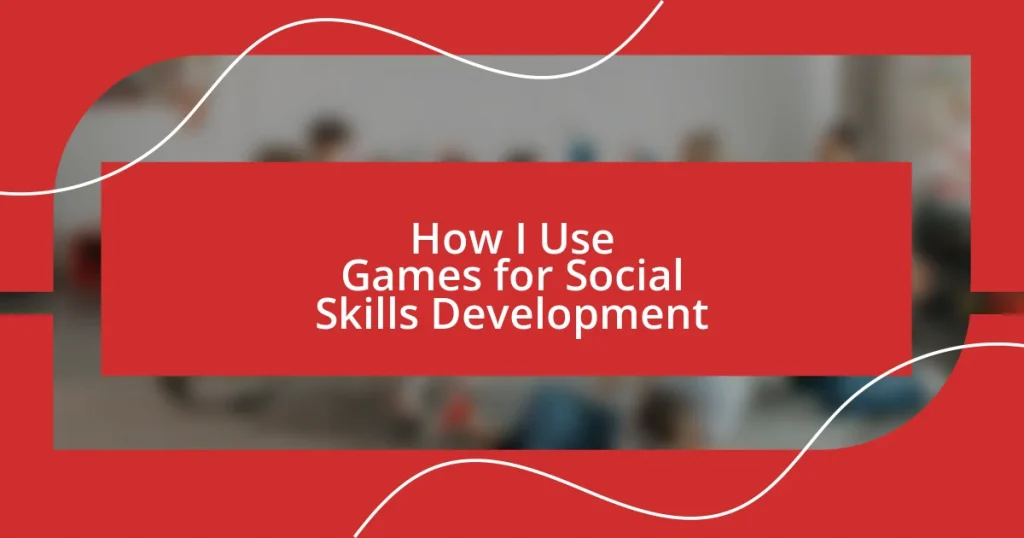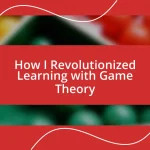Key takeaways:
- Games serve as effective tools for developing social skills by promoting communication, empathy, and teamwork in a playful environment.
- Structured group activities and role-playing games provide practical platforms for participants to practice social interactions, enhance problem-solving abilities, and learn from real-time feedback.
- Measuring progress in social skills can be achieved through observing incremental changes, setting benchmarks, and encouraging peer feedback, fostering a supportive space for growth and reflection.
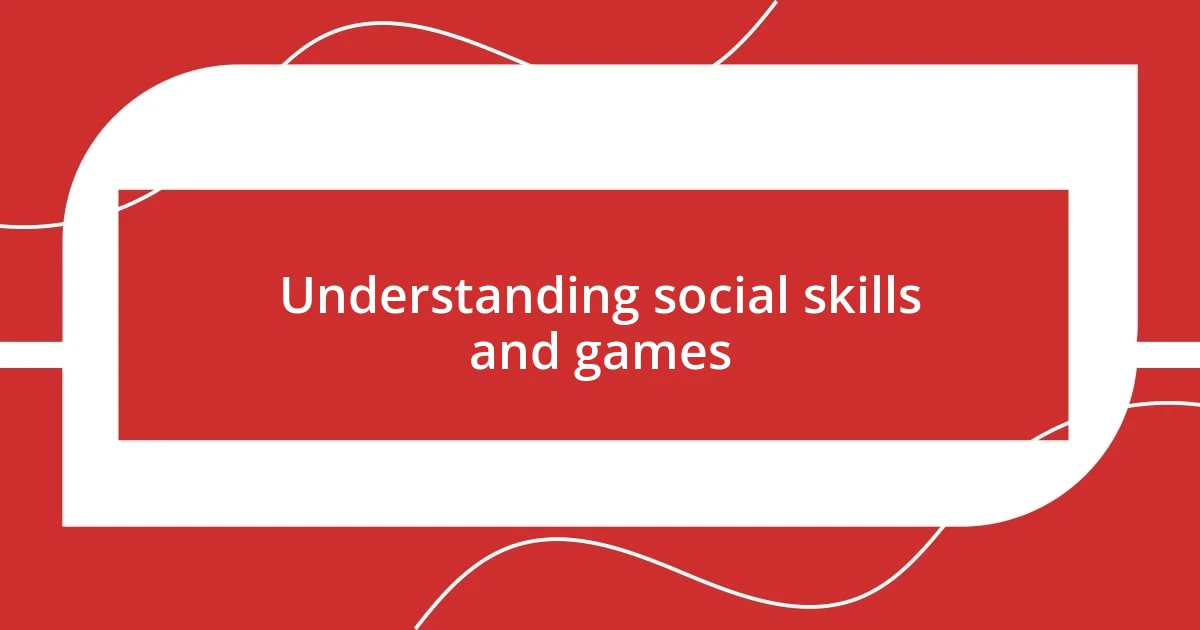
Understanding social skills and games
Games are a fantastic medium for honing social skills, often transforming abstract concepts into engaging activities. I remember participating in team-based board games where collaboration was essential. It struck me how each move required communication, negotiation, and sometimes, compromise—skills that are invaluable in real life.
When I think back to game nights with friends, I see how they helped strengthen my ability to read social cues. I would often observe how my friends reacted to each other’s moves, which sparked conversations about emotions and intentions. Isn’t it fascinating how a simple game can create an environment rich in social learning and connection?
Moreover, games inherently foster a sense of community and belonging. I experienced this during a local Dungeons & Dragons campaign. Sitting around the table, crafting stories together, I realized that the camaraderie built through shared objectives helped cultivate trust and openness among us. How many other experiences could evoke those same emotions in a safe, playful setting?
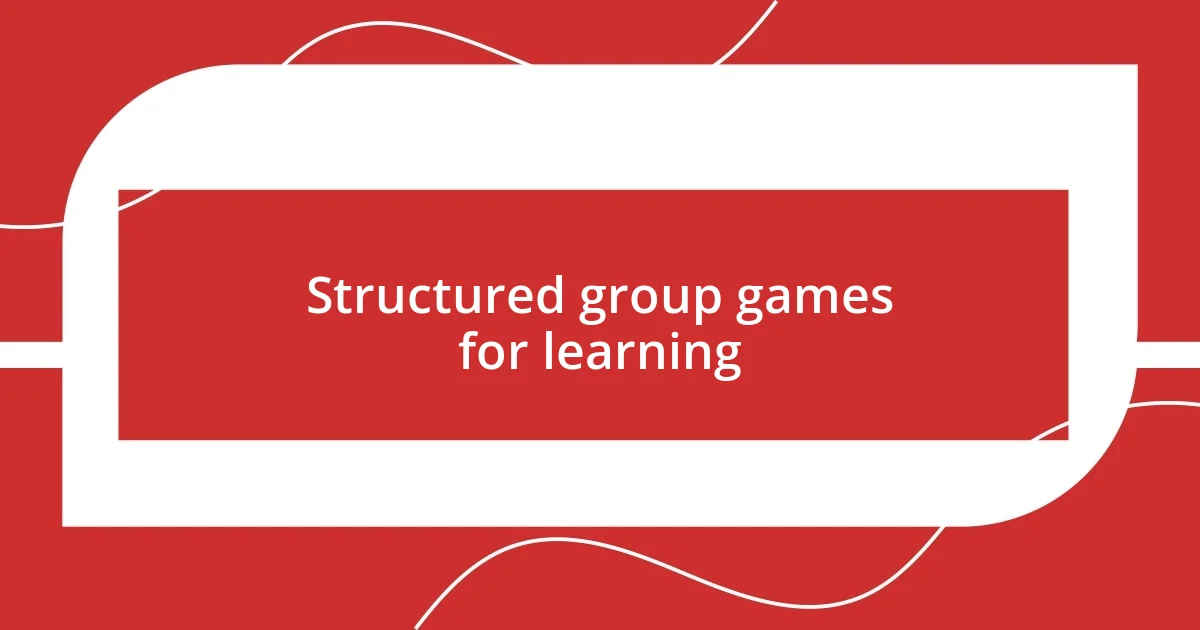
Structured group games for learning
Structured group games play a crucial role in social skills development. I can vividly recall a workshop where we used group activities like charades and relay races to foster teamwork. The energy was palpable! Watching people who were usually reserved step into their roles and collaborate was nothing short of inspiring.
Here are some structured group games that effectively promote social skills:
- Human Knot: Participants stand in a circle, reach out, and grab hands with two different people, then try to untangle without releasing their grip. This encourages problem-solving and communication.
- Role-Playing Scenarios: By acting out different social situations, players can practice responses and understand perspectives, enhancing empathy.
- Team Sports: Engaging in soccer or basketball not only builds teamwork but also teaches about cooperation, respect, and handling wins and losses gracefully.
- Group Storytelling: Each person contributes a line or paragraph, requiring everyone to listen and adapt to others’ ideas, fostering creativity and collaboration.
Each experience with structured games has reaffirmed my belief that play can be a powerful teacher. There’s something magical about seeing individuals come together, breaking down barriers, and forming connections in an exhilarating way.
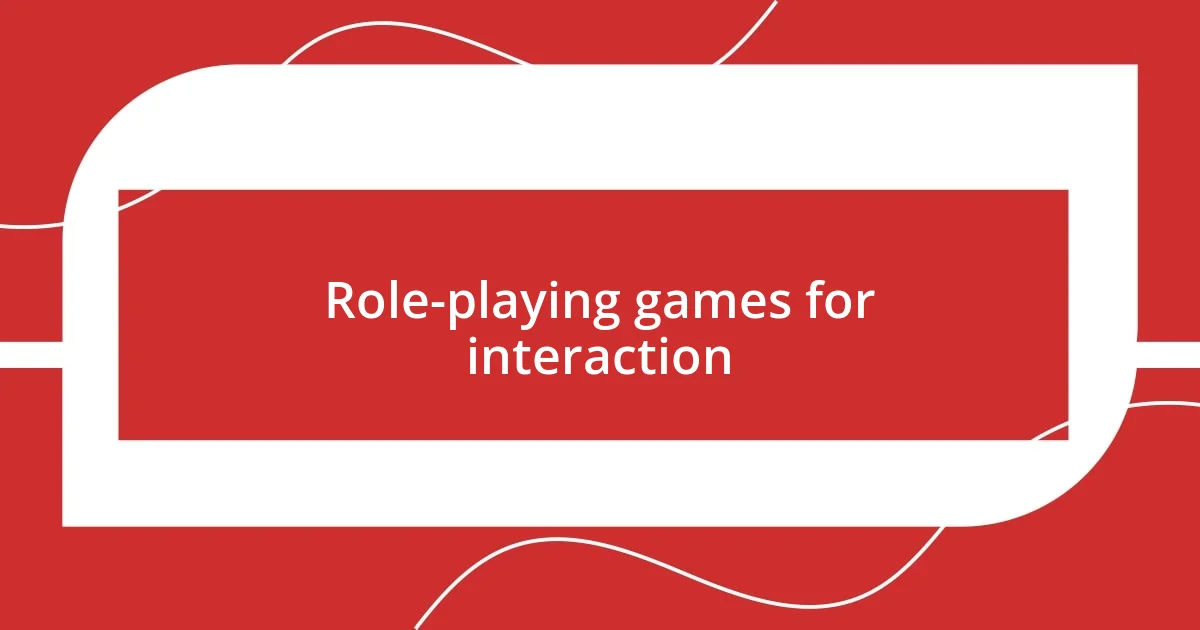
Role-playing games for interaction
Role-playing games are an incredible avenue for interactive social skill development. I remember diving into a role-playing scenario where I had to assume the identity of a character quite different from myself. It was eye-opening! Stepping into another person’s shoes forced me to navigate complex social interactions, enhancing my ability to empathize and understand differing viewpoints. I found myself not only acting out dialogues but genuinely feeling the emotions tied to my character’s experiences.
The beauty of role-playing games lies in their versatility. Whether in a casual setting with friends or a structured workshop, each game creates a platform for practicing conversation and negotiating solutions. For instance, I once participated in a game where we had to work together to solve intricate puzzles while staying true to our characters. The laughter and sometimes heated debates that emerged were valuable lessons in communication skills! Moreover, I felt the team spirit grow as we celebrated our successes and learned from our failures together.
Incorporating role-playing into social skills development enables real-time feedback. I recall an instance where one player’s choice was critiqued, leading to a rich discussion about decision-making and its impact on relationships. These moments often ignite self-reflection and growth, as players learn to assess their choices and consider others’ perspectives, proving that role-playing is so much more than just fun—it’s a powerful educational tool.
| Game | Description |
|---|---|
| Dungeons & Dragons | Players collaboratively create stories, taking turns in role-playing to navigate scenarios, requiring strategy and teamwork. |
| Improvisation Games | Participants respond spontaneously to prompts, enhancing quick thinking and adaptability in social interactions. |
| Character Acting Scenarios | Players assume roles in crafted narratives, practicing empathy and how to navigate various social situations. |
| Escape Room Challenges | Team-based problem-solving fosters communication and reinforces the importance of collaboration under pressure. |
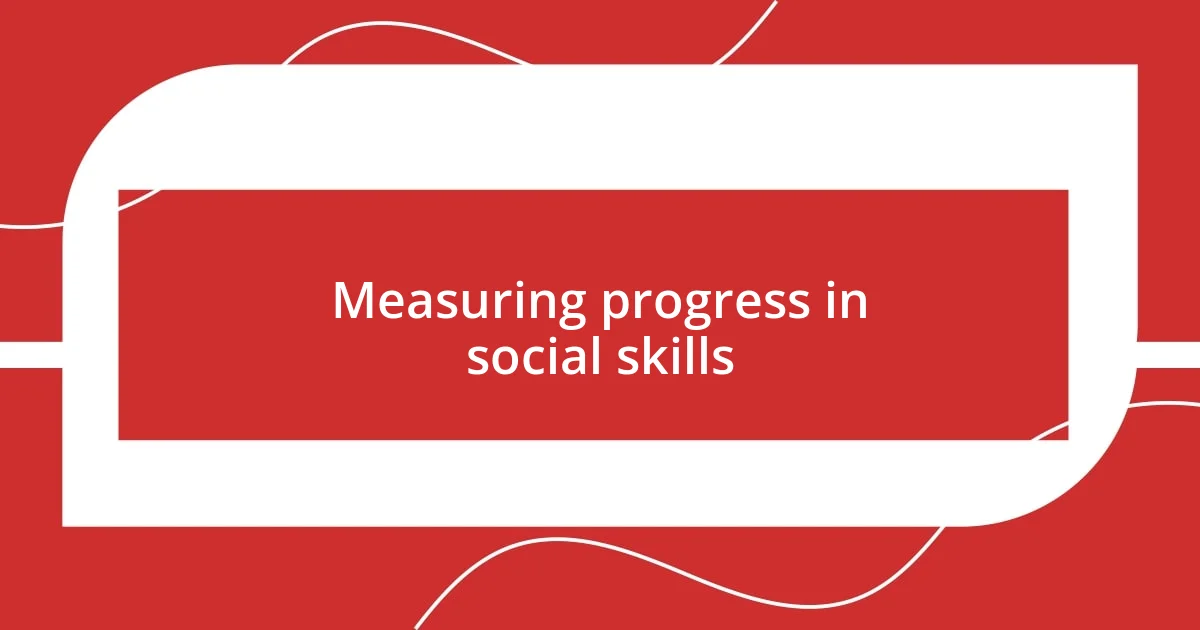
Measuring progress in social skills
Measuring progress in social skills can often feel like a daunting task, but I find that small, observable changes can tell a powerful story. For example, during a consistent gaming group I was part of, I noticed that one member, who initially struggled to voice their opinions, began to contribute more freely over time. Watching that shift was exhilarating! It made me realize that progress isn’t always about grand declarations but often comes in the form of subtle, yet significant growth.
Setting benchmarks can also be incredibly helpful for tracking development. In my experience, I would use specific moments during games to reflect. For instance, if a player successfully navigated a disagreement by using active listening, I would highlight that as a milestone. I often ask myself—how do we celebrate these victories? Recognizing achievements, no matter how small, fosters an environment where everyone feels valued, encouraging further participation.
Feedback from peers also plays a vital role in measuring growth. There was a memorable session when, after a challenging game, we all sat down to discuss what went well and what could be improved. This reflection allowed each of us to see our own and each other’s progress, creating a supportive space for learning. It’s essential to ask questions like, did this experience enhance your confidence? This kind of introspection leads to deeper connections and a better understanding of our social skills journey together.









